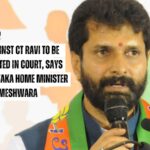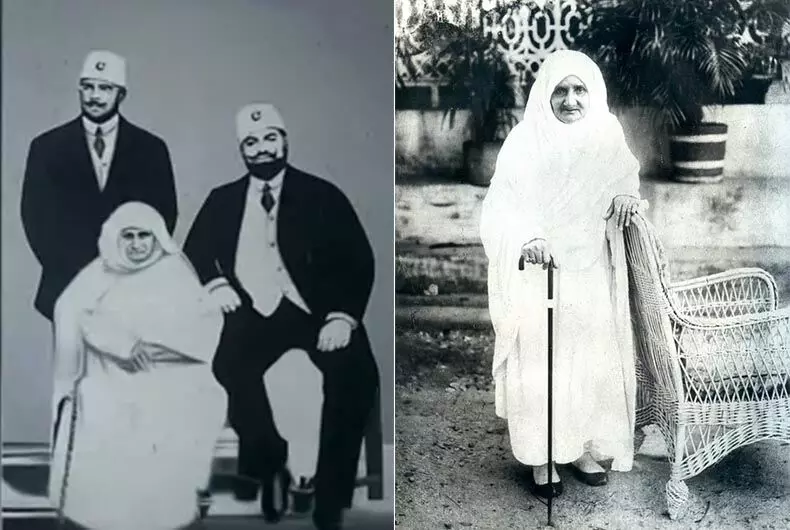Abadi Bano Begum broke down the social stigma of women’s status in the Muslim world by setting an illustrious example for all women in general and Muslim women in particular.
She is a lesser-known freedom fighter who did everything in her power to ensure Hindu-Muslim harmony, take part in the Khilafat movement, and contribute to the nation’s freedom struggle.
She was also the mother of Muhammad Ali Jauhar and Shaukat Ali, two outstanding liberation fighters who are more commonly referred to as the Ali Brothers.
Early life
Bi Amma was born in Rampur, India, in 1850 into a patriot family. Bi Amma was married to Abdul Ali Khan, a senior official in Rampur, UP. The couple had six children, one daughter and five sons.
She was traumatized by the 1857 uprising, which sparked a fierce longing inside her for the country to be free of British rule.
She was a brave and knowledgeable lady. Widowed at a very young age, she took on the duty of parenting her children with the highest honesty and dignity.
Despite being a young widow at that period of time, when the life of widows was not acceptable to be normal, she held the boat for her son’s education.
Rajmohan Gandhi describes how the young widow raised her children on plain food and the Prophet’s sayings while dressing her children in modest clothing in his book Eight Lives: A Study of the Hindu-Muslim Encounter.
But she made sure the children attended schools with an English-speaking curriculum. When their uncle said he wouldn’t pay for their schooling because he wouldn’t want the boys to become unbelievers, Bi Amma sold her jewelry with the help of her next-door neighbor’s maid.
She bravely battled for her sons’ modern English education despite not having received any official schooling.
After graduating from Aligarh Muslim University in 1898, Maulana Muhammad Ali enrolled at Lincoln College Oxford in England to study modern history. He rejoined the Baroda Civil Service after his return and worked there for seven years.
Freedom Struggle and Bi Amma.
She was a well-known figure among the few Muslim women who had actively taken part in the Indian Independence movement.
Mahatma Gandhi even referred to her as his mother due to her active role in the fight to free the nation from the British Raj.
She had a significant impact on the struggle for Indian independence as well as the Khilafat movement’s fundraising efforts.
She spoke to a large audience on behalf of her sons while they were both jailed and delivered an impactful statement.
It was the first time a Muslim woman wearing a burqa was known to have spoken before a political assembly. She was such a fearless lady who spoke before sizable crowds as she traveled the nation.
She joined the campaign in 1917 to help in Annie Besant and her two sons’ prisoner release. Mahatma Gandhi had a conversation with her about enlisting the aid of women in the independence cause at this point.
Bi Amma actively participated in the Khilafat movement and the liberation movement after taking Gandhi’s instructions into consideration. She also inspired many women to take part more actively in the freedom campaign.
Maulana Mohammad Jouhar mentions Bi Amma in Gandhi and the Ali Brothers: Biography of a Friendship by Rakhahari Chatterji.
He added, “Suffice it to say that, although she was essentially illiterate, I have, in all my experience, of men of all kinds, come across none that I could call wiser and certainly that was more truly godly and spiritual than our mother.”
Her role in the Non-cooperation movement
Bi Amma raised money and arranged gatherings of Indian women to inform them of the struggle and the value of forgoing foreign products during the Khilafat and Non-Cooperation movement.
She continued to support the cause alongside her principal allies, Begum Hasrat Mohani, the wife of Maulana Hasrat Mohani, Sarala Devi Chaudhurani, Basanti Devi, and Sarojini Naidu.
Speaking before crowds of people, she urged attendees to contribute to the Tilak Swaraj Fund, which Bal Gangadhar Tilak established in support of the Indian liberation movement.
Bi Amma once cautioned, “Countrymen! Give up the way of life of these foreigners. Stick to the traditional way of life of your ancestors. Serve not these foreigners, nor accept honors from them because these people are very crafty and fraudulent.”
Bi Amma’s involvement in the Non-cooperation Movement exemplified her commitment to India’s fight for independence and her dedication to the principles of nonviolence and civil disobedience.
Her sons led the Khilafat movement.
The sons Maulana Shaukat Ali and Maulana Mohammed Ali Jauhar became famous as the Ali brothers.
The majority of the Muslims in India were against fighting the fellow Muslims of Turkey as during World War –I, Britain, and Turkey which was the seat of the Caliphate then were in opposite camps.
India was fighting for the British. The Ali brothers in 1920 allied with Indian National Congress which was running Non-Cooperation Movement led by Mahatma Gandhi.
Bi Amma was a progressive thinker.
In an era when English education was equated with adultery, she was a progressive thinker who valued modern English education.
She lived a life of strict purdah, but when the nationalist movement gained strength and both of her sons along with Mahatma Gandhi were put in prison, she broke the taboo against women and pushed them to join her on the streets in support of the freedom cause.
Despite the fact that she lacked formal education, she was utterly convinced of the benefits of contemporary education for Muslims in the subcontinent.
She strongly stood for inter-communal cooperation and was one of the leading members of the Hindu-Muslim alliance.
It is regrettable that our educational system has so far ignored Bi Amma’s contribution, and it is important for our society to learn about such people.
People were inspired by Bi Amma to have courage and confidence. Bi Amma died in 1924, leaving a legacy of perseverance and plurality in her wake.
During the freedom movement, she was one of the leaders of the Hindu-Muslim alliance and actively promoted intercommunal harmony by preaching that it was necessary to achieve freedom.
She referred to Muslims and Hindus as “the two eyes of India” and worked relentlessly to promote harmony between the two groups.
Though she is an unsung warrior of freedom struggle there are places, where her legacy of thought and education is embraced.
After Abadi Bano Begum’s death in 1924, she left a lasting impression on all Indians, regardless of age.
Even the Pakistani government recognized her role in the freedom movement sixty-six years after she passed away by creating a commemorative postage stamp in her honor.
On 28th September 2012, a girl’s hostel was named in memory of Bi Amma at the Jamia Milia Islamia Institute in New Delhi.
– Bi Amma Girls Hostel in Jamia Millia Islamia, New Delhi. Image via Jamia Millia Islamia.
Bi Amma’s progressive thinking, commitment to inter-communal harmony, and dedication to education left a lasting impact.
Despite facing societal challenges, she fearlessly advocated for women’s rights and shattered stereotypes.
Her contributions deserve recognition, as she remains an inspiring symbol of courage and pluralism.
Bi Amma’s legacy serves as a powerful reminder that individuals can create lasting change through their unwavering determination and belief in a united, harmonious India.

Follow us on Twitter, Instagram, and Youtube to get the latest update!









